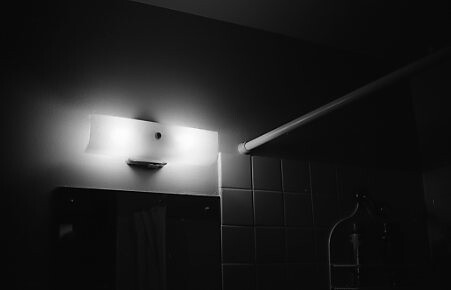So here's what my ocd was up to on Tuesday:
OCD: What's that on your legs?
Me: Kind of looks like broken blood vessels.
OCD: There were some last week on one leg, but now they are on both. This must be serious. You need to know what they are.
Me: Maybe the marks have been there awhile and I didn't notice until I start wearing summer clothes. It doesn't hurt or itch.
OCD: It could be connected to your low iron count. It could be really bad. What if you don't go to the doctor and then it turns out that you missed a major sign of a serious illness? Look it up.
Me: When I look things up, I deteriorate quickly. I find something scary, and then keep searching and searching.
OCD: BUT. YOU. NEED. TO. KNOW. NOW.
Me: I could go to see my doctor.
OCD: But in the meantime, look things up. You can't wait. You will implode with anxiety, and you'll start obsessing about this constantly.
Me: This uncertainty is very uncomfortable. I would like it to go away. Given a choice between websearching and going to the doctor, in spite of potential humiliation of it being nothing, I'd rather see the doctor. I'll call.
************************
OCD: Oh, man. The receptionist offered you an appointment at 4:00--it must be serious.
Me: I won't know until I get there.
OCD: What if it is really nothing? The receptionist asked if it hurt and you said no. You led her astray by calling in the first place. You are just obsessing again, and deficient as a human being. This is just like your past--seeing the doctor for reassurance.
Me: Yes, it might be nothing. Part of me really suspects it's just the effects of age. You aren't very flexible OCD--you are demanding I know ahead of time what is wrong or not wrong with my skin. That's not humanly possible.
OCD: You suck. You'll never get this right.
Me: Yeah, you could be correct, but there is no universal law that if you guess wrong before seeing the doctor, you qualify as a failure.
********************************
At the doctor's office:
Dr: Let's see what's going on with your legs. (Leans in to look.)
Hmmm. I certainly didn't think, "Oh, my goodness. What happened to your legs??" (Gets down on floor to take a closer look.) I don't think it's clinically significant. Kind of looks like broken blood vessels. Maybe it's just gravity. I can do some blood work, but I would be very surprised if something bad was going on.
********************
So here I am. I survived this visit. The biggest difference now is that I could joke about my "Gravity Legs Syndrome," with my husband. I had my blood taken today and now I wait for the results. Part of what got to me so quickly was the fear of obsessing. What if I start obsessing about this? What if the fear never dissipates? This combined with the old crap about being a failure and worthless makes for a powerful cocktail of anxiety. I felt fatigued by my
OCD hypervision, but relieved that I didn't feel my value as a person was on the line when visiting the doctor, in spite watching her crawl around on the floor trying to see what I can see.










